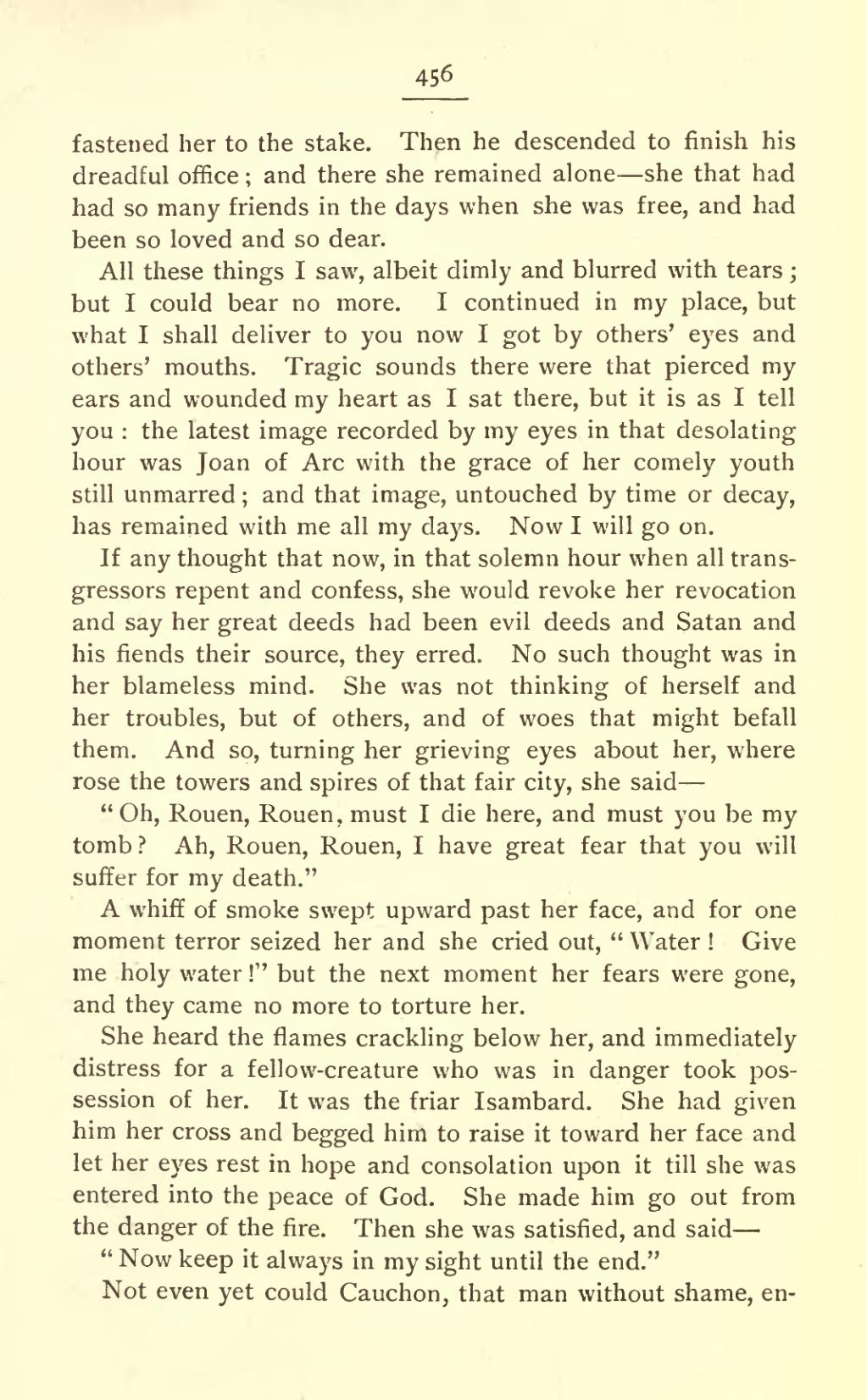456
fastened her to the stake. Then he descended to finish his dreadful office; and there she remained alone—she that had had so many friends in the days when she was free, and had been so loved and so dear.
All these things I saw, albeit dimly and blurred with tears; but I could bear no more. I continued in my place, but what I shall deliver to you now I got by others' eyes and others' mouths. Tragic sounds there were that pierced my ears and wounded my heart as I sat there, but it is as I tell you: the latest image recorded by my eyes in that desolating hour was Joan of Arc with the grace of her comely youth still unmarred; and that image, untouched by time or decay, has remained with me all my days. Now I will go on.
If any thought that now, in that solemn hour when all transgressors repent and confess, she would revoke her revocation and say her great deeds had been evil deeds and Satan and his fiends their source, they erred. No such thought was in her blameless mind. She was not thinking of herself and her troubles, but of others, and of woes that might befall them. And so, turning her grieving eyes about her, where rose the towers and spires of that fair city, she said—
"Oh, Rouen, Rouen, must I die here, and must you be my tomb? Ah, Rouen, Rouen, I have great fear that you will suffer for my death."
A whiff of smoke swept upward past her face, and for one moment terror seized her and she cried out, "Water! Give me holy water!" but the next moment her fears were gone, and they came no more to torture her.
She heard the flames crackling below her, and immediately distress for a fellow-creature who was in danger took possession of her. It was the friar Isambard. She had given him her cross and begged him to raise it toward her face and let her eyes rest in hope and consolation upon it till she was entered into the peace of God. She made him go out from the danger of the fire. Then she was satisfied, and said—
"Now keep it always in my sight until the end."
Not even yet could Cauchon, that man without shame, en-
